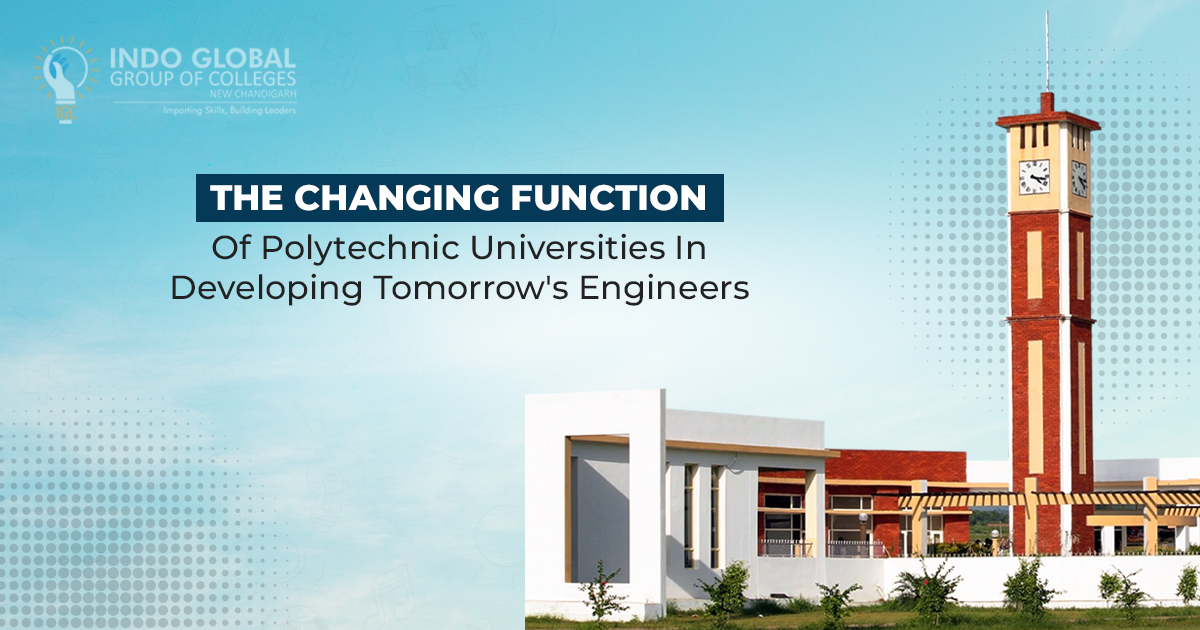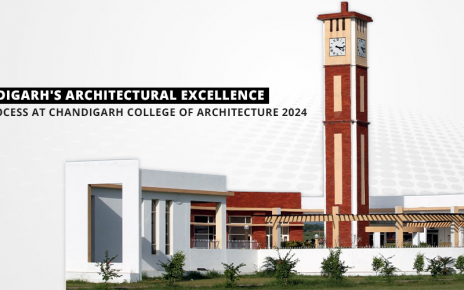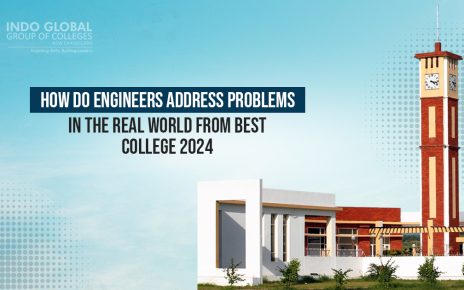Polytechnic universities have undergone significant transformations in recent years, evolving from institutions primarily focused on technical education to dynamic hubs of innovation and creativity. In today’s rapidly changing world, these institutions play a crucial role in developing the engineers of tomorrow. Changing function of polytechnic universities, emphasizing their role in nurturing talent and fostering innovation.
The Rise of Specialized Programs: Best Polytechnic Courses
Best Polytechnic courses in India are technical diploma programs offered by polytechnic colleges or institutes. These programs focus on practical training and technical skills development in various fields of engineering, technology, and applied sciences.
- Mechanical Engineering: This course focuses on the study of machines, manufacturing processes, thermodynamics, and mechanical systems. It is popular due to the high demand for mechanical engineers in various industries.
2.Civil Engineering: Civil engineering deals with the design, construction, and maintenance of infrastructure such as buildings, roads, bridges, and dams. It is a popular choice because of the extensive opportunities in the construction industry.
3.Electrical Engineering: This course covers the study of electrical systems, power generation, transmission, and distribution. With the increasing demand for electricity and renewable energy sources, electrical engineering is a sought-after field.
4.Electronics and Communication Engineering: This course focuses on electronics, telecommunications, and the design of electronic devices. It is popular due to the growth of the telecommunications and consumer electronics industries.
5.Computer Science and Engineering: This course provides knowledge of computer hardware, software, programming, and networking. With the booming IT industry in India, computer science and engineering is a popular choice among students.
6.Automobile Engineering: This course focuses on the design, manufacturing, and maintenance of automobiles. With the increasing number of vehicles on the road, there is a demand for skilled automobile engineers.
7.Chemical Engineering: Chemical engineering involves the study of chemical processes, plant design, and production of chemicals. This field offers opportunities in industries such as petrochemicals, pharmaceuticals, and manufacturing.
8.Aerospace Engineering: This course deals with the design, development, and maintenance of aircraft and spacecraft. It is a specialized field that attracts students with a keen interest in aviation and space technology.
9.Electronics and Instrumentation Engineering: This course combines electronics, instrumentation, and control engineering. It involves the study of electronic devices, control systems, automation, and measurement techniques. Electronics and instrumentation engineers are in demand in industries such as manufacturing, power plants, oil and gas, and automation.
10.Robotics Engineering: Robotics Engineering is a specialized branch of engineering that focuses on the design, construction, operation, and use of robots.
Colleges to Pursue Diploma in Engineering Courses
Chandigarh, known for its vibrant academic environment, is home to several top polytechnic colleges offering exemplary engineering programs. Among the best colleges in Chandigarh for engineering, Indo Global college Polytechnic stands out for its commitment to academic excellence and industry relevance. Some of the best colleges to pursue Diploma in Engineering courses. We proudly collaborate with IGEF to provide exceptional engineering education.
Our Tie-ups

Emphasis on Hands-On Learning
Polytechnic universities have long been known for their emphasis on practical, hands-on learning experiences. However, in today’s digital age, this approach has become more important than ever. Modern engineering students require not only theoretical knowledge but also practical skills to excel in their careers. Polytechnic institutions integrate hands-on learning opportunities, such as internships, co-op programs, and project-based coursework, to ensure students graduate with real-world experience and problem-solving abilities.
Industry Partnerships and Collaboration
To stay relevant in a rapidly evolving technological landscape, polytechnic universities are forging strategic partnerships with industry leaders. These collaborations offer several benefits, including access to state-of-the-art facilities, industry mentors, and internship opportunities. By aligning their curricula with industry needs, polytechnic institutions ensure that graduates are well-prepared to meet the demands of the workforce. For example, partnerships with companies in sectors like automotive, aerospace, and information technology enable students to gain practical experience and insights into industry trends.
Integration of Emerging Technologies
The rapid advancement of technology has revolutionized the field of engineering, and polytechnic universities are at the forefront of integrating these innovations into their programs. From 3D printing and robotics to virtual reality and machine learning, students have access to cutting-edge tools and technologies that enhance their learning experience. By incorporating emerging technologies into the curriculum, polytechnic institutions prepare students to tackle complex challenges and drive innovation in their respective fields.
Focus on Entrepreneurship and Innovation
Polytechnic universities are increasingly fostering a culture of entrepreneurship and innovation among their students. Recognizing the importance of creativity and problem-solving skills in today’s economy, these institutions provide resources and support for aspiring entrepreneurs. Incubator programs, startup competitions, and entrepreneurship courses empower students to turn their ideas into viable businesses. By nurturing an entrepreneurial mindset, polytechnic universities prepare students to become leaders and innovators in their chosen fields.
Conclusion
Polytechnic universities play a vital role in developing the engineers of tomorrow by adapting to the evolving needs of the industry and embracing innovation. Through specialized programs, hands-on learning experiences, industry partnerships, and a focus on entrepreneurship, these institutions equip students with the skills and knowledge needed to thrive in a rapidly changing world. As the demand for skilled engineers continues to grow, polytechnic universities will remain key drivers of innovation and progress, shaping the future of engineering education.



